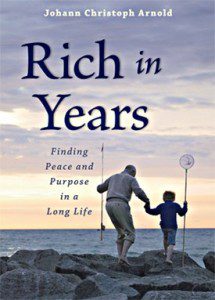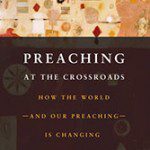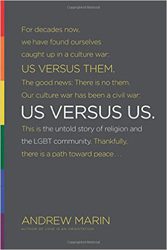 I have just passed my sixty-first birthday. It seems like almost yesterday I was going to love-in’s in Golden Gate Park and partying with surfer girls and high school mates in Santa Cruz, California. Whenever we chat on Facebook, my friends from the James Lick High School (San Jose, CA) class of 1970 reminisce about old times and share photos of our grandchildren. Although we are in good health, some of our comments remind me of the bantering among the characters of the recent film, “Last Vegas!” We are forever young, yet “aging children,” as Joni Mitchell laments. On occasion, I describe myself as being in midlife, as many baby boomers do, but that’s provided I make it to 120 years! I am young at heart; constantly opening to new ideas, but I can no longer pretend to be twenty or thirty or even forty, physically speaking. I have experienced the agony of “de-feet,” have a bit of a Buddha-belly, and take medication for hypertension. I walk four miles a day, and no longer jog for an hour at a time. I even have my own personal daily pill box!
I have just passed my sixty-first birthday. It seems like almost yesterday I was going to love-in’s in Golden Gate Park and partying with surfer girls and high school mates in Santa Cruz, California. Whenever we chat on Facebook, my friends from the James Lick High School (San Jose, CA) class of 1970 reminisce about old times and share photos of our grandchildren. Although we are in good health, some of our comments remind me of the bantering among the characters of the recent film, “Last Vegas!” We are forever young, yet “aging children,” as Joni Mitchell laments. On occasion, I describe myself as being in midlife, as many baby boomers do, but that’s provided I make it to 120 years! I am young at heart; constantly opening to new ideas, but I can no longer pretend to be twenty or thirty or even forty, physically speaking. I have experienced the agony of “de-feet,” have a bit of a Buddha-belly, and take medication for hypertension. I walk four miles a day, and no longer jog for an hour at a time. I even have my own personal daily pill box!
I realize that there are more years behind me than ahead. I am healthy, have never had surgery or been hospitalized, but that can’t go on forever. I live with my ninety-six year old mother-in-law, whose current condition is a constant reminder that “aging is not for sissies.” In a society that glorifies youth and hides aging and the aged, Johann Christoph Arnold’s Rich in Years: Finding Purpose in Life is countercultural in spirit. Arnold doesn’t minimize the challenges of aging, but places them in the wider context of divine providence and our faithfulness to our creator.
Like all aging boomers, I struggle with the reality of aging. I am occasionally anxious when I think of possibilities such as Alzheimer’s disease, loss of energy, stroke, heart disease, and cancer. The words of Robert Browning – “Grow old along with me! The best is yet to be” – are little solace to me when I ponder physical, emotional, and mental diminishment. As a pastor, I regularly see once vital and energetic people – influential in education, theology, business, and community leadership – who now struggle to remember what day it is. Such encounters are sobering. I am on holy ground as their pastor or former colleague, but wonder if they are able find holiness in their current mind-body-spirit condition. I wonder if I would experience the sacred in their condition.
The Psalmist counsels us to “count our days that we may gain a wise heart.” (Psalm 90:12) There is, as Ecclesiastes recognizes, a season for everything and that includes aging. Episcopalian priest Alan Jones once said that spirituality deals with the unfixable aspects of life, and there is no way we can “fix” aging. With Johann Christoph Arnold, we need to find purpose in aging and the purpose of aging is to be discovered in living fully one day at a time. In living with the unfixable realities of life, and committing the unfixable realities to God, we discover that “growing old is an adventure. It’s something you’ve got to do with daring. You lose one thing after another and become more dependent and more stupid and all kinds of things, but still it should be an adventure.” (9) You can be “rich in years” despite the realities of physical and relational diminishment.
Spiritually speaking, I am trying to respond to the eventualities of aging by living fully right now. An early Christian spiritual leader said that the “glory of God is a person fully alive.” I am working these days at being “fully alive.” I don’t have one vision of full aliveness: as matter of fact being fully alive is personal and differs one person to the other. A friend of mine, living with incurable cancer, is fully alive by living simply each day. Her bucket list includes spending time with her family, reading a good book, and enjoying water colors. For others, this might mean going to a monastery or making a parachute jump. For me, it means living right now – thinking big, living big, loving big, expecting great things of myself and great things of God. It means growing in spirit and soul. It means opening my heart to others and expanding my sense of self to embrace as much of reality as possible.
I seek to open to the universe, and to God, through prayer and meditation. Living daily, opening to God enables us to be “quotidian mystics,” finding divinity in this present moment. Robert Jay Lifton spoke of five images of immortality: biological (living on in children), creative (making a difference in the present and future), natural (wonder at the immensity and grandeur of nature), theological (belief in the afterlife), and experiential transcendence (a sense of the mystic, a unity with all creation).
Arnold and I would expand theological immortality to involve relationship with God. In this area, Paul’s Letter to the Romans (chapter eight) presents a life-changing vision of immortality: the cries of creation and our cries are one in spirit; God is constantly speaking in our lives; and God is ever-present, affirming that “nothing in all creation can separate us from the love of God.”
Aging is no cake walk! And I still feel fear and trembling at times when I ponder my own diminishment. Still, remembering that I can live fully at every stage of life and that I can dedicate my life to experiencing “God in all things and all things in God” gives me hope that I can age with acceptance and grace regardless of my life condition.













